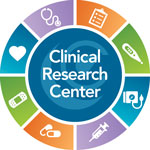By Julie Carrico, MBA, CCRC
A conversation about prevention of Alzheimer’s disease is destined to be a brief one because, based on what we know, prevention is impossible.
A more fruitful conversation is one about how to manage risk factors for Alzheimer’s disease. The World Health Organization defines a risk factor as “any attribute, characteristic or exposure of an individual that increases the likelihood of developing a disease or injury.” The bottom line then is that, reducing or eliminating risk factors is important for decreasing the likelihood of developing the disease.
defines a risk factor as “any attribute, characteristic or exposure of an individual that increases the likelihood of developing a disease or injury.” The bottom line then is that, reducing or eliminating risk factors is important for decreasing the likelihood of developing the disease.
The good news is that many of the risk factors are things we can control (see “Don’t wait to check out memory concerns” blog). For example, numerous studies show that people who eat a healthy diet, exercise, have refreshing sleep, engage in mentally stimulating activities and have meaningful social connections are less likely to develop the disease. In addition, Alzheimer’s disease occurs less often in patients who are proactive in managing other diseases, such as diabetes.
There are some risk factors we cannot truly control. For example, increasing age and being female increase the likelihood of Alzheimer’s disease. We also can’t control exposures we may have had to things like pesticides or other chemicals.
Research is being done in Alzheimer’s-disease prevention, and there are studies in progress. One such study is the A4 Study, which we have written about many times. Dear Abby even wrote about this study in a recent column! Patients eligible for the A4 Study must have certain risk factors and meet other requirements to be enrolled in the study. OHSU is one of the centers participating in the A4 Study and you can find out more at A4 Study.
While we all hope that medical research can develop a true Alzheimer’s-disease prevention, such as a vaccine, this is many years in the future, if at all. But lifestyle changes as discussed above can influence the likelihood of developing the disease. What are you waiting for?
The Clinical Research Center is currently seeking volunteer patients in two studies for those with mild Alzheimer’s disease, a dust mite allergy study, and several Type 2 diabetes studies.
If you are interested in learning more about clinical trials, contact the Clinical Research Center at 541-766-2163, or send an email to research@corvallisclinic.com or fill out our Research Study Information Request form. And, don’t forget to follow us on Facebook at https://www.facebook.com/corvallisclinicresearch.
– Julie Carrico is Associate Coordinator of The Corvallis Clinic Clinical Research Center and a Certified Clinical Research Coordinator.
